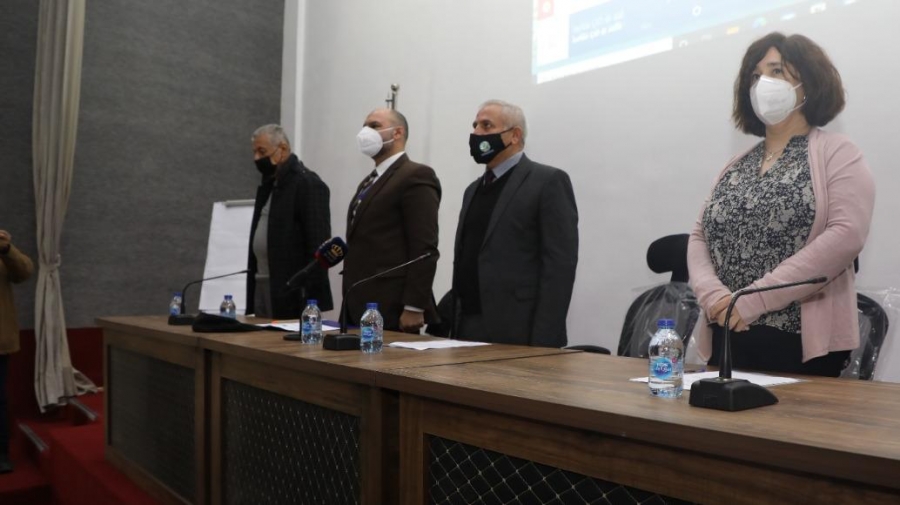- Local News
- Mon-2022-02-14 | 03:32 pm

Nayrouz News Agency :
A workshop was held at the premises of the National Agricultural Research Center "NARC" on "A study to monitor honey bee breeds in the Mediterranean, and their resilience to climate change for the improvement of sustainable agro-ecosystems”. Mr. Omar Abu Eid, Energy, Environment & Climate Change Programme Manager, represented the Delegation of the European Union to the Hashemite Kingdom of Jordan in the workshop on MEDIBEES project, which is led by the Spanish Center for Beekeeping and Agro-Environmental Research (CIAPA).
Abu Eid affirmed his pride in the efforts exerted by NARC towards scientific research on the national level, in adopting modern technologies and agricultural practices, working in partnership with other institutions, which positively reflects on the agricultural sector to achieve food security, assuring the support provided by the European Union towards the national institutions that seek to bring in pioneering projects that achieve agricultural sustainability.
The Assistant Director-General for Research, Dr. Naem Mazahrih, valued the role of the European Union in the region by supporting pioneering projects and accelerating the pace of development and modernization in the region, addressing that there are agreements with the EU that would develop the agricultural sector, that makes the EU a strategic partner with NARC to achieve comprehensive agricultural development.
Dr. Mazahrih indicated that the European Union projects focus on critical agricultural issues, especially with regard to sustainable irrigation water management, non-conventional water use, water management governance, groundwater management, unconventional water recycling and the water, energy and food nexus, in addition to the challenges of climate change and crop adaptation, and promoting the social inclusion of youth and women, sustainable development, and monitoring the diversity of honey bee breeds and their adaptation to climate change.
Dr. Wisam Obeidat said that NARC is hosting a coordination meeting for the research study to monitor the diversity of honey bee breeds in the Mediterranean basin and their resilience to climate change for the improvement of sustainable agro-ecosystems, as one of the projects funded by the European Union. A research team from several countries of the Mediterranean basin, namely Spain, Italy, Portugal, Algeria, Lebanon, Turkey, Malta and Jordan participated in the meeting. The meeting aims to discuss methods of collecting honey bee samples to make a genetic map of the local bee breeds for each participating country and to determine the honey bee breed(s) that are most resistant to climate changes and pests.









